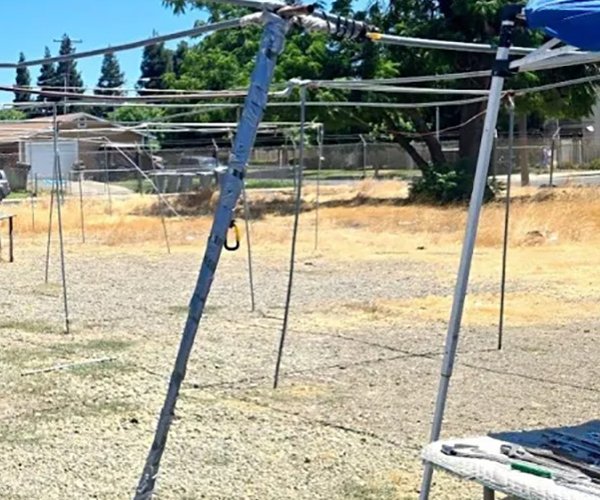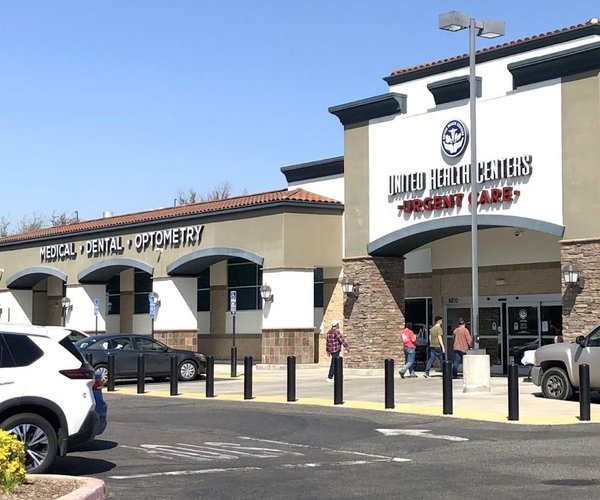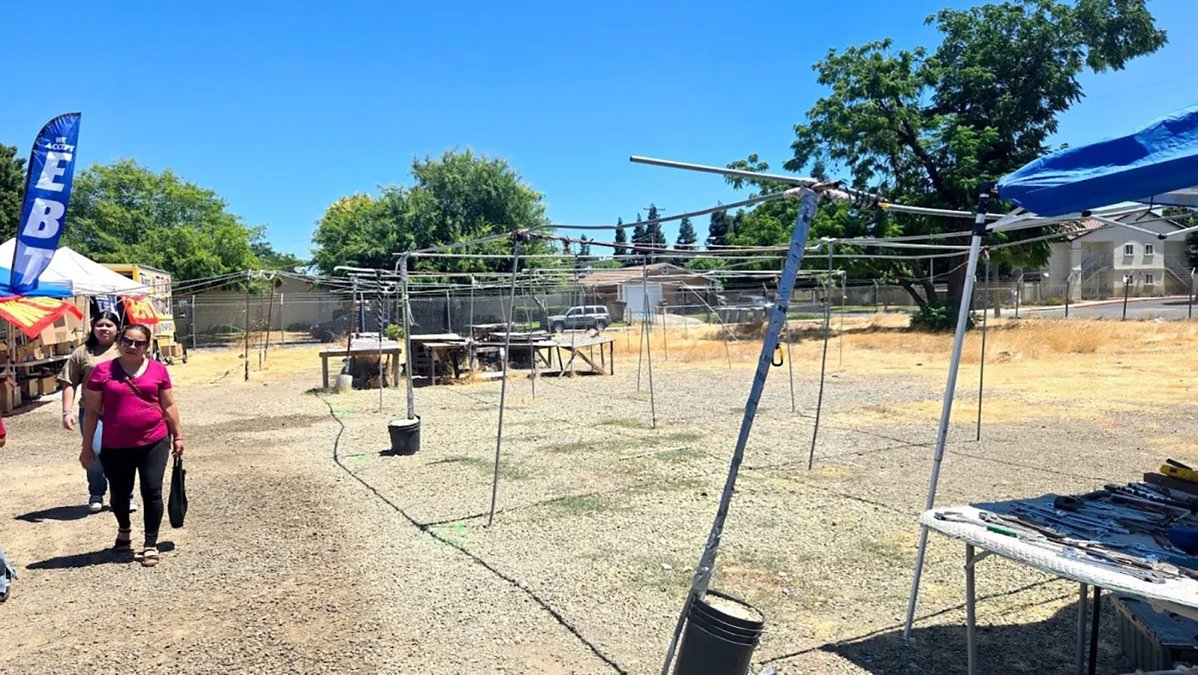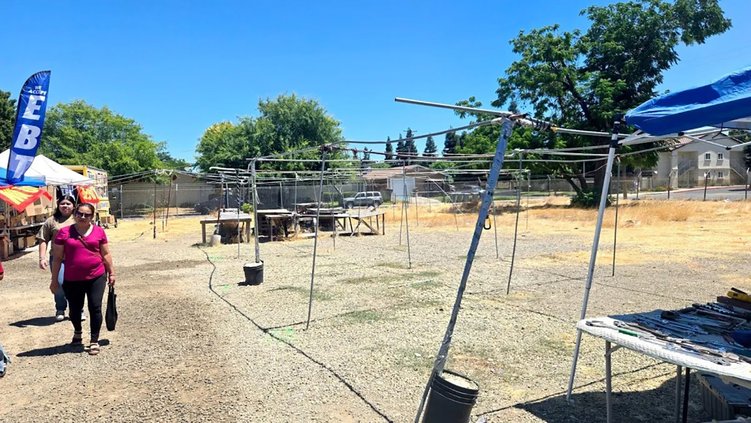As the City of Turlock’s redevelopment agency prepares a bond issuance to fund the proposed new Public Safety Facility, redevelopment agencies statewide have been thrown into disarray by Gov. Jerry Brown’s 2011 budget proposal.
“Right now it’s a great unknown,” said Heidi McNally-Dial, Turlock Redevelopment and Economic Development manager. “And that unknown is having impacts on the municipal bond market and redevelopment agencies already.”
That budget proposal calls for complete dissolution of all redevelopment agencies in the State of California, with the state redirecting funds previously intended for redevelopment to other state obligations, primarily education. Redevelopment agencies would still receive their share of tax dollars to pay off existing debt, but beyond that details of the cut remain in flux.
“We don’t—I don’t—want to interfere with any redevelopment bond or commitment that has been contractually entered into,” Brown said. “But going forward, the redevelopment takes money from schools, cities, and counties, and we want that money to be available, because all that’s happened in the redevelopment is that the state has to backfill and pay to make up for the property taxes that are taken by redevelopment. So, in effect, what we’re doing here is spending money at the local level that the state doesn’t have. So we want to take that money and leave it at the local level for the purposes that it was historically intended. That’s police or fire or local activities, county, or schools.”
The uncertain, potentially “use it or lose it” scenario has redevelopment agencies across the state racing to issue bonds before redevelopment is eliminated. In efforts to prevent that, Brown requested the California Legislature pass emergency legislation barring redevelopment agencies from issuing new debt.
According to McNally-Dial, rumor has it that the Legislature – should the needed two-thirds majority approve – may retroactively forbid new bonds, backdating to Jan. 10.
“Then we’re not going to be seeing a new Public Safety Facility any time in the near future,” McNally-Dial said.
The City of Turlock Redevelopment Agency is in the midst of an up-to $25 million bond issuance, about $15 million of which would fund the two-story, 57,570 square foot future home of Turlock’s police and fire departments. Turlock is currently preparing the final official bond statements, waiting for pricing to take place before the bonds can go to market in the next few weeks.
With the municipal bond market thrown into turmoil by the possibility of bond issuances being revoked, though, there’s no guarantee Turlock will find a willing buyer. According to McNally-Dial, other agencies have seen bond issuances fall through in the past week due to the lack of a willing buyer.
“We’re still moving forward but we don’t really know if it’s going to come to fruition at this point,” McNally-Dial said.
RDA funding crucial to Turlock projects
Turlock has used its redevelopment agency to fund myriad projects in the past, from the new Fire Station No. 1, to the renovated Carnegie Arts Center, and Joe Debely Stadium. RDA funding has built infrastructure in Turlock’s Westside Industrial Specific Plan industrial park, offered first-time homebuyers loans, and built 129 low-income multiple family units. The agency has even acquired land for a future, 100-plus unit multi-family housing development.
That’s the purpose of redevelopment agencies, which were established in California law as a way to improve blighted neighborhoods through tax-funded improvements. Redevelopment agencies earmark a certain percentage of their funds for low to moderate income housing, while the remainder is often spent on public works projects to increase property values in an area, allowing agencies to borrow more.
Brown’s budget proposal comes less than two months after voters approved 2010’s Proposition 22, which explicitly prohibits the state from borrowing or taking funds used for redevelopment. That proposition was intended to prevent a repeat of 2009’s $1.7 billion state raid of local redevelopment funds; the City of Turlock Redevelopment Agency’s share in that take amounted to $3.3 million.
With Prop 22 in place – and the state’s uncertain ability to block redevelopment agencies from bonding – a legal challenge almost certainly awaits any state action. Determining which side is legally in the right will likely take time, and money.
“This budget proposal to eliminate redevelopment is more budget smoke and mirrors that will bring little financial gain for the state, but will cause widespread and significant economic pain in communities throughout California,” said California Redevelopment Association Executive Director John Shirey. “It is another gimmick that will likely result in extensive litigation.”
CRA officials warn that, should the elimination of redevelopment make the final state budget, the state’s biggest job creation program would end. Redevelopment funding creates 300,000 jobs a year, mostly in construction, and the state earns $2 billion in revenues from RDA projects.
The CRA also expressed fears that eliminating redevelopment could lead to sprawl development and increased greenhouse gas emissions, as developing on untouched land is usually less expensive than redeveloping existing parcels without redevelopment agency assistance.
“Bottom line, the budget proposal to eliminate redevelopment will hurt California and cripple the local economy in cities and counties statewide. It is not a solution and will not work to solve the state’s budget problems,” Shirey said.
Without a redevelopment agency, the City of Turlock’s ability to finance future projects would be jeopardized.
The city would likely be forced to issue other types of bonds, similar to sewer and water bonds already issued by the city, but those can oftentimes require voter approval. Other options include financing capital improvements through developer fees – a declining source of revenue in the down economy – or through state and federal road programs, which also have shrinking funds.
Brown has proposed granting enhanced bonding abilities to local governments to make up for the loss of redevelopment dollars, but for local officials it’s difficult for cities to imagine a future without one of their main sources of funding.
“It is one of the few tools that local agencies have in terms of financing mechanisms for community improvements,” McNally-Dial said. “We’ll just have to wait and see what happens.”
To contact Alex Cantatore, e-mail acantatore@turlockjournal.com or call 634-9141 ext. 2005.









